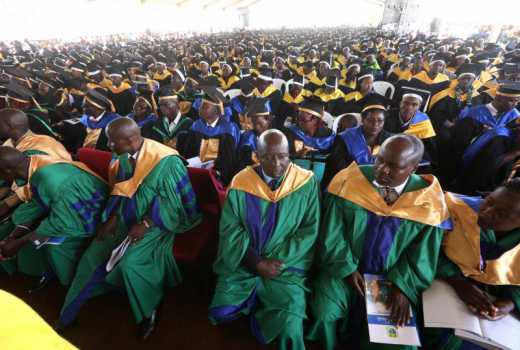×
The Standard e-Paper
Smart Minds Choose Us

Details of how majority of universities are struggling financially can be laid bare today as they prepare to admit the second lot of students under strict reforms introduced two years ago by then Education Cabinet Secretary Fred Matiangi.
With less than half of the declared capacity of students set to be admitted for the second time come next month, several universities are struggling to stay afloat and could find it harder to operate unless they devise ways of raising money.